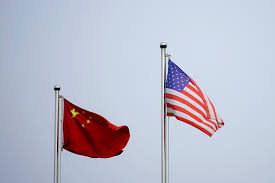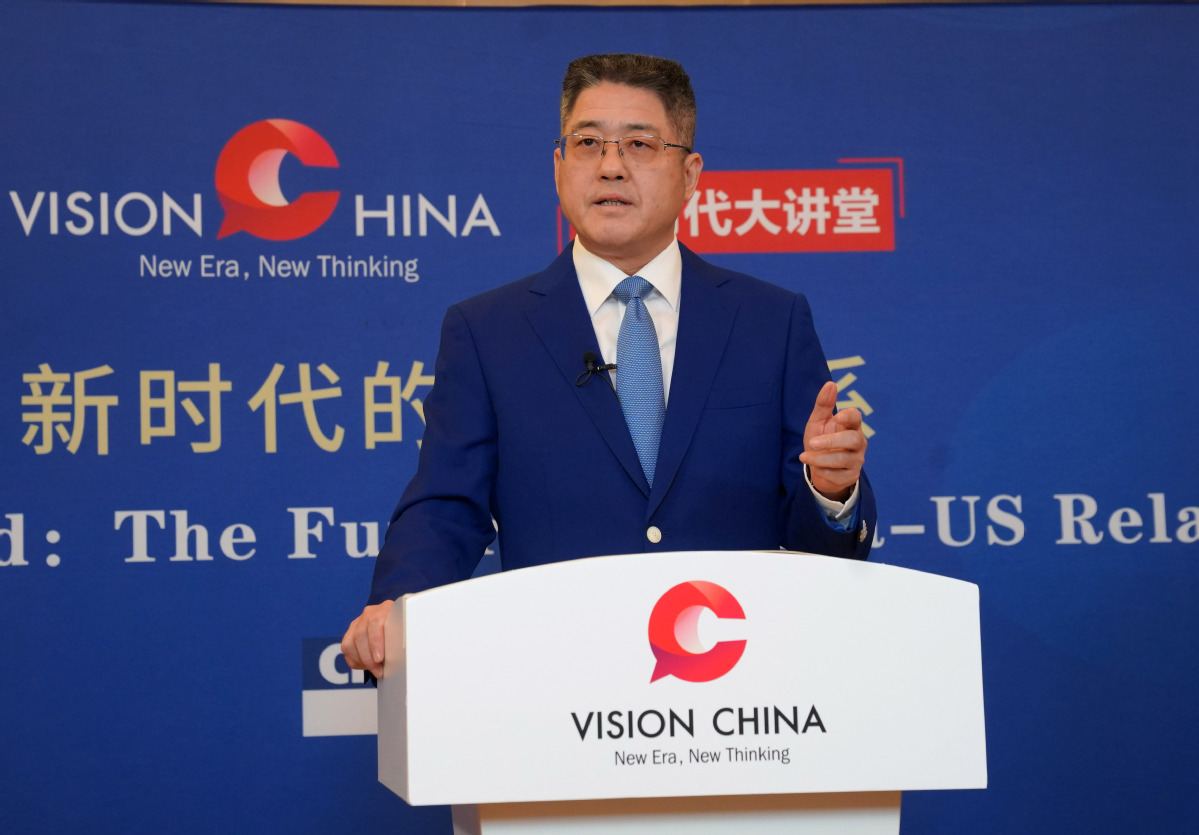Mindblown: a blog about philosophy.

China urges U.S. to strictly observe one-China principle
China on Wednesday urged the United States to draw lessons from history, honor the three China-U.S. joint communiques and strictly observe the one-China principle. Foreign Ministry Spokesperson Wang Wenbin made the remarks at a regular press briefing when asked to comment on the 40th anniversary of the August 17 Communique, one of the three China-U.S. […]

China, US advised to refresh ties
Officials and experts have urged China and the United States to reshape their damaged relationship and called on the new US administration to employ positive policies to refresh ties with Beijing to benefit both nations and the world. Addressing the virtual Vision China event organized by China Daily on Thursday, Le Yucheng, vice-minister of foreign […]
![[:en]Robots patrol city pipes to detect defects[:]](https://sinomedia.ge/wp-content/uploads/2018/09/9FE3FC04-E584-427B-897B-D27F3CCEC02F.jpeg)
[:en]Robots patrol city pipes to detect defects[:]
[:en] A six-wheeled robot travels underground in Hefei, capital of east China’s Anhui Province, to detect warning signs of defects inside the pipeline network. The pipeline robot, developed by Wuhan Easy-Sight Technology, is composed of four parts — crawler, camera, cable reel, and controller. A full charge can enable the robot to work for four […]
![[:en]Palace Museum begins restoration of Hall of Mental Cultivation[:]](https://sinomedia.ge/wp-content/uploads/2018/09/1AFA6A99-AB32-4430-A00A-CCE1E92CA8A4.jpeg)
[:en]Palace Museum begins restoration of Hall of Mental Cultivation[:]
[:en] With the rising popularity of Chinese historical dramas The Story of Yanxi Palace and Ruyi’s Royal Love in the Palace, learning more about palace life in ancient China has become extremely trendy among young people in China. “Look at the visitors outside ‘The Hall of Mental Cultivation’ exhibition, we have to stand in two […]
![[:en]2018 Summer tourism season with over 3 million visitors from all over the world[:]](https://sinomedia.ge/wp-content/uploads/2018/09/C06C8635-51CC-4477-8EB8-C3EEF468D9F0.jpeg)
[:en]2018 Summer tourism season with over 3 million visitors from all over the world[:]
[:en] During 2018 summer tourist season in Georgia visitors overal number showed 3,061,338 international visitors. The visitors number has increased 10.9% compared to last years summer tourism season announces Georgian National Tourism Administration (GNTA). From January to August 2018 a total of 5,895,914 international visitors visited Georgia of which 3,235,800 were tourists. The majority of […]
![[:en]Huawei overtakes Apple as world No. 2 smartphone seller[:]](https://sinomedia.ge/wp-content/uploads/2018/09/01-apple-e1536062243656.jpg)
[:en]Huawei overtakes Apple as world No. 2 smartphone seller[:]
[:en] China’s Huawei Technologies overtook Apple Inc (AAPL.O) to become the world’s second-biggest smartphone seller in the June quarter, data from market research firms showed, as it gained ground in Europe and expanded its lead back home. The International Data Corporation (IDC) published the business success of the first half of 2018, according to which […]

Nikoloz Basilashvili praised by Nadal after US Open tennis match
[:en] Georgia’s leading tennis player Nikoloz Basilashvili has been praised for his performance in the US Open round of Last 16 by the World No. 1 Rafael Nadal, following their three hours, 20-minute match in New York on Sunday. The 26-year old, Tbilisi-born athlete reached the fourth round in a major competition for the first […]
![[:en]Voices of tech entrepreneurs from the two sessions[:]](https://sinomedia.ge/wp-content/uploads/2018/03/5aa5e2e8a3106e7d2d766a5d.jpg)
[:en]Voices of tech entrepreneurs from the two sessions[:]
[:en] 1. Pony Ma Huateng, chairman and CEO of Tencent, and a deputy to the 13th National People’s Congress Keywords: Digital China, Guangdong-Hong Kong-Macao Greater Bay Area This year, Ma brings eight suggestions to the top legislature, covering Digital China, industrial internet, digital culture, financial security, medical healthcare, teenager innovation talent training, the construction of […]
![[:en]NPC passes Constitution update[:]](https://sinomedia.ge/wp-content/uploads/2018/03/5aa5ddeea3106e7d2d76679a.jpg)
[:en]NPC passes Constitution update[:]
[:en] Amendment, first since 2004, includes provisions reinforcing country’s goals The National People’s Congress, China’s top legislature, adopted a landmark amendment to the country’s Constitution by secret ballot on Sunday, enshrining Xi Jinping Thought on Socialism with Chinese Characteristics for a New Era into the fundamental law. The adoption of the first amendment to the […]
![[:en]HK, Macao urged to actively join Bay Area devt[:]](https://sinomedia.ge/wp-content/uploads/2018/03/5a993a83a3106e7d2d74fe05.jpg)
[:en]HK, Macao urged to actively join Bay Area devt[:]
[:en] HK and Macao special administrative regions are urged to timely grasp opportunities provided by the Guangdong-Hong Kong-Macao Greater Bay Area and actively integrate themselves into the country’s overall development, said Wang Guoqing, spokesman of the country’s top political advisory body, on Friday. Wang revealed that the development plan for the Bay Area has already […]
Got any book recommendations?